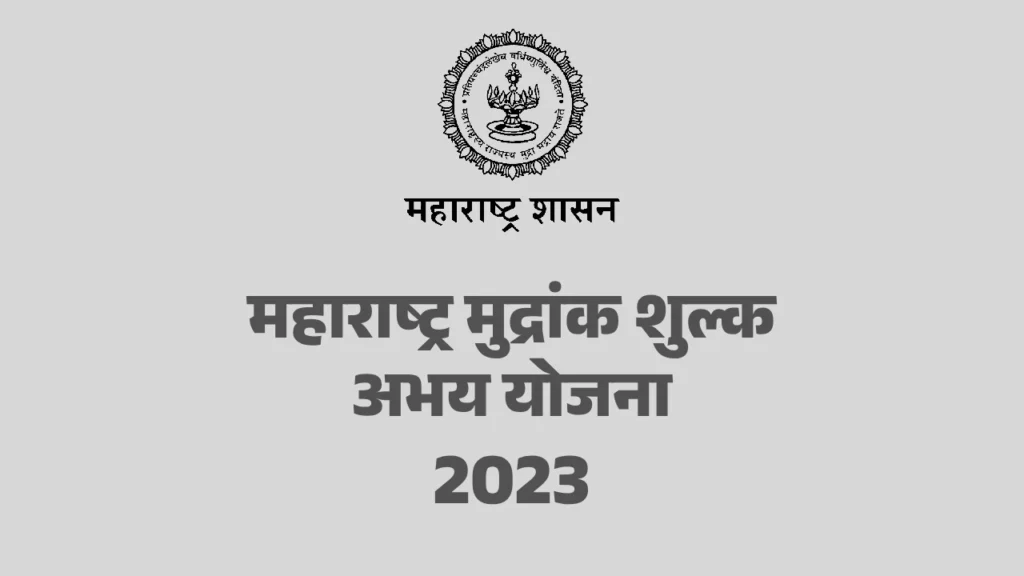Explore Maharashtra’s newly-introduced Mudrank Shulakh Abhay Yojana, a stamp duty amnesty scheme offering waivers and reductions. However, concerns linger regarding document identification and communication gaps, urging a proactive digital approach.
Maharashtra’s Stamp Duty Amnesty Unveiled
The Maharashtra government has recently issued a notification elucidating the intricacies of the ‘Mudrank Shulakh Abhay Yojana,’ a stamp duty amnesty scheme. This initiative, introduced last month, aims to incentivize the settlement of overdue stamp duty payments by providing discounts on associated penalties.
Phased Benefits and Timeline
Under the scheme, documents executed between January 1, 1980, and December 31, 2000, fall under Phase 1, active from December 1, 2023, to January 31, 2024. During this period, a complete waiver (100%) on stamp duty and penalties is applicable for amounts ranging from Rs 1 to Rs 1 lakh. For amounts exceeding Rs 1 lakh, a 50% rebate on stamp duty and a full waiver on penalties will be granted.
The second phase, spanning from February 1 to March 31, 2024, offers reduced benefits. Amounts up to Rs 1 lakh receive an 80% reduction in stamp duty and penalties, while amounts surpassing Rs 1 lakh get a 40% reduction in stamp duty and a 70% reduction in penalties.
Government’s Statement and Phase-wise Reductions
The government’s statement highlights that for deeds executed between January 1, 1980, and December 31, 2020, but not filed or registered, the entire stamp duty and penalty will be exempted. Phase 1 for deeds executed between January 1, 2000, and December 31, 2020, offers a 25% reduction in stamp duty for amounts up to Rs 25 crore, and a 20% reduction for amounts exceeding Rs 25 crore. Additionally, penalties below Rs 25 lakh receive a 90% rebate, while penalties surpassing Rs 25 lakh require only Rs 25 lakh payment, with the remaining balance waived.
Phase 2 mirrors the same reductions in stamp duty and penalties, with variations based on the transaction amounts.
Concerns Raised by Maharashtra Societies Welfare Association
Ramesh Prabhu, Chairman of the Maharashtra Societies Welfare Association, expressed concerns over the recent notification. Notably, there’s ambiguity regarding the responsibility division between sub-registrars and collectors of stamps, especially concerning registered and unregistered documents.
Absence of Guidelines on Pending Documents
Crucially, the notification lacks guidelines on identifying pending registered documents, raising concerns about effective dissemination and awareness. Prabhu suggests a proactive approach, advocating for the government to make pending stamp duty payment details available on their website for independent checks.
Challenges with Untraceable Documents
Addressing the issue of untraceable documents, estimated at around 20,000 cases, Prabhu emphasizes the need for clarity. Individuals with only photocopies or receipts of registered documents might face challenges, and Prabhu raises questions about the acceptance of such receipts or copies under the amnesty scheme.
Digital Solutions Proposed
To streamline the stamping of new unregistered documents, Prabhu proposes accepting online applications, particularly given the time constraints of the amnesty scheme. He further recommends leveraging online channels for payments to prevent document misplacement and ensure timely processing.

